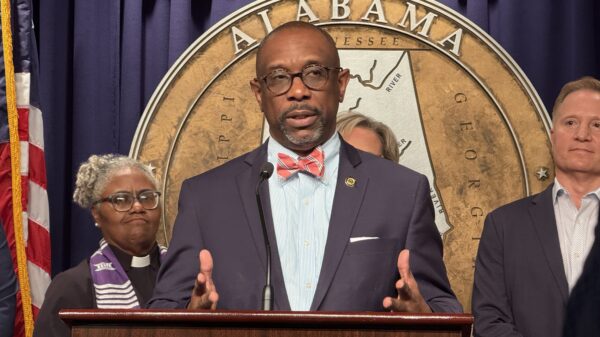By Terry Andrus
President and CEO, East Alabama Medical Center
On Sept. 18, Alabamians will vote on a constitutional amendment to allow $148 million a year, for the next three years, to be transferred from the Alabama Trust Fund (ATF) to the General Fund. Being conservative by nature, my first response to such a request is usually “no.”
However, this transfer of funds is critical to Alabama and Lee County. Voter approval of this amendment could not be more important for the state’s operating budget in that it would keep Alabama on stable economic footing while future reforms and financial initiatives are explored by our state’s leaders.
If the amendment fails, Gov. Robert Bentley estimates the entire General Fund will have to be prorated another 16 to 17 percent, on top of budget reductions that have already occurred. This level of cuts will jeopardize needed services and result in significant job losses, thus accelerating the state’s downward economic spiral.
Some of the programs that would be affected if the amendment isn’t approved include state troopers, state parks and mental health. However, the two largest budgets to be slashed would be prisons and Medicaid, which could not sustain the revenue shortfalls. If voters reject the constitutional amendment to allow the transfer of funds:
» The state would have to cut services, such as dialysis care, prescription medications for adults, critical transportation for children and home care. Without these basic services, Medicaid recipients would be forced to use hospital emergency rooms as their primary source of health care, which would be expensive and lead to overcrowding.
» Some hospitals would have to cut staff, others might cut services and those with significantly high volumes of Medicaid patients might be forced to close. Hospital margins are simply too thin to support large program reductions. A recent survey found 46 hospitals operating in the red and revealed a statewide average margin of 1 percent. If you remove the seven hospitals with the highest margins, the average drops below negative 1 percent.
» Some physicians will be forced to make difficult choices. Those who serve large numbers of Medicaid patients, such as pediatricians, may find they have no option other than to close their practices, impacting every Alabama citizen and creating a ripple effect on other health services in the area, including hospitals.
» The state’s health care infrastructure could be permanently eroded. Once a physician or a hospital leaves a community, it’s often too costly to try and bring them back. Our state has many small communities where this is a real possibility.
» Locally, 40 percent of all pediatric patients are Medicaid recipients and approximately 50 percent of all births are Medicaid recipients. Without this additional revenue, services to pediatric and obstetrical patients could be compromised. Other services locally that could be compromised include nursing home care, home health care and hospice care.
One can hang on to political ideology and cause women, children and the elderly to suffer, or one can serve those less fortunate and vote “yes” on Sept. 18. I encourage you to join me in voting “yes” for Alabama’s future. I also encourage you to visit www.keepalabamaworking.com to learn more about the constitutional amendment.
Terry Andrus is the president and CEO of East Alabama Medical Center.




















































